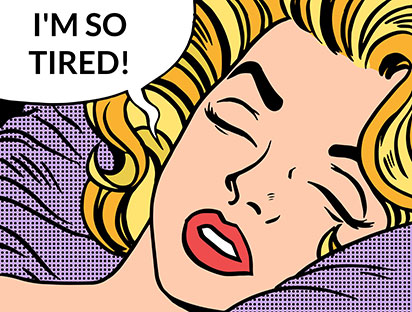Teaching about sleep
Sleep patterns change as teenagers progress through puberty, due mainly to a later release of melatonin. But good sleep hygiene can still be achieved. Discover the three key building blocks to getting a good night’s sleep.
Feeling calm and relaxed
It’s difficult to get to sleep if you’re feeling hyper aroused – stressed, excited, anxious. Your body needs about 60-90 minutes to prepare for sleep. It isn’t a light switch – you can’t just switch it off and expect to go instantly to sleep. So winding down and feeling calm and relaxed is a really important factor underpinning good sleep. Having a routine, or creating a set of habits to follow each night, helps your body and brain to recognise that it is time to unwind and sleep.
Building sleep pressure
The ‘need for sleep’ is also known as ‘sleep pressure’. It grows throughout the day so the longer you’re awake, the more sleep pressure builds up, making you feel sleepy in the evening. This is why in general, the longer you are awake, the sleepier you feel. And to get good sleep, we need to build up our sleep pressure each day. But sleep pressure builds up more slowly in adolescence which is why teenagers often don’t feel sleepier till much later. So we need to think about what you can do to make sure you’re building your need for sleep each day.
Getting the timing right
Your circadian rhythm, or the body’s internal clock, regulates when we need to sleep and wake up on about a 24-hour cycle. Light is the most powerful influence on your circadian rhythm – so when it starts to go dark, your body releases a hormone called melatonin (sometimes called the ‘darkness’ or ‘vampire’ hormone) to make you feel sleepy. Exposure to natural light is therefore really important – especially early in the day – as is having a regular sleep schedule (i.e. going to sleep and waking up at the same time every day). You want to try and keep your body clock as regular and as consistent as possible.
Teenagers and sleep
Teenagers experience a shift in their sleep timing: the urge to sleep in teenagers builds up more slowly during the day leading to reduced feelings of sleepiness – making it harder to get to sleep at night AND wake up in the morning. Melatonin (the hormone that indicates it is time for sleep) is also typically released in adults around 10pm. But in teenagers it is released around 2 hours later – again making it much harder to teenagers to go to sleep at usual times. Artificial lights (including LED light from phones, laptops etc) also plays a part in delaying the release of melatonin.
What the research says…
Find out about the scientific evidence behind the wellbeing strategies suggested in our lessons.
Reducing blue light in the evenings
Artificial light prior to sleep can disrupt your circadian rhythm because it reduces the body’s release of melatonin, a hormone that makes you feel sleepy. Night-time use of screens – including use of mobile phones, television watching, and playing video games – is shown to reduce both sleep duration and quality.
Getting natural light in the mornings
Natural light is an environmental cue that influences your body’s natural 24-hour clock (or circadian rhythm). Exposure to natural light in the mornings makes you feel more awake during the day, and is shown to improve mood, sleep quality, physical health, and mental health.
